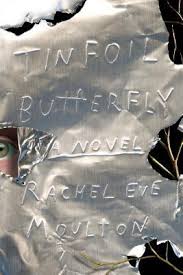Night Boat to Tangier by Kevin Barry
 Monday, September 16, 2019 at 8:12AM
Monday, September 16, 2019 at 8:12AM 
First published in Great Britain in 2019; published by Doubleday on September 17, 2019
Night Boat to Tangier is a story of transitions, bonds broken and restored, losses and recovery. The focus is on two older men and a young woman, although flashbacks also reveal the life of a woman who was with one of the men for twenty years before deciding she had to become a different person.
Maurice Hearne and Charlie Redmond are in the Algeciras terminal, distributing pictures of Dilly, a pretty girl of 23 who, according to a reluctant source, might be on her way to Tangier. Dilly was raised as Maurice’s daughter and perhaps she is. The two aging Irishmen have not seen her in three years. They roughly question young tourists who look like they might know her, tourists with dreadlocks and dogs, the kind of people (according to a roughly questioned source) with whom she has been traveling.
Maurice and Charlie began to do business in Spain in 1994, the business involving a woman named Karima and some Moroccan hash bound for Cork. Maurice was warned away from the deal by the Brit who explained it to him, but the temptation of riches overcame good judgment. Maurice and Charlie rose above their station too quickly, leading them to hide from time to time. Maurice and his wife had Dilly, made bad investments, assuaged their fear with heroin.
The long friendship of these two men has not been untroubled. The best chapter in the book details a fierce quarrel between the two as seen from the perspective of a bartender in a seedy pub in Cork. Underlying the animosity is Cynthia, Dilly’s mother.
One chapter recounts a conversation between Dilly and Cynthia that changes the course of Dilly’s life, undoubtedly for the better. Another chapter focuses on Dilly in the present, who has changed so much that even if Maurice and Charlie spot her in Algeciras, they might not know her, or they might realize that she is better off without them.
Kevin Barry’s beguiling prose reveals the contradictory natures of Maurice and Charlie, setting them in the piratical history of the Barbary coast while keeping their roots in mythical Ireland: “Its smiling fiends. Its speaking rocks. Its haunted fields. Its sea memory. Its wildness and strife. Its haunt of melancholy. The way that it closes in.”
Maurice and Charlie are philosophers of crime who expound with equal ease upon the sweetness of life at its best and the darkness of people at their worst. As they reflect on their lives, Charlies says: “We all have our regrets, Maurice. As older gentlemen.” Both men have much to regret. Life goes by so quickly and so much of it is wasted. Yet life gives us memories we will never regret, and those are the memories that sustain the men as the years advance.
Perhaps the Irish are born with a lyrical prose gene that is unique to their nation. If only for the charm of its language, Night Boat to Tangier is a gift to readers. Its insightful exploration of difficult lives is a bonus.
RECOMMENDED



